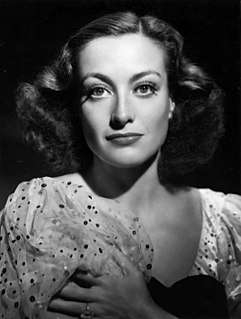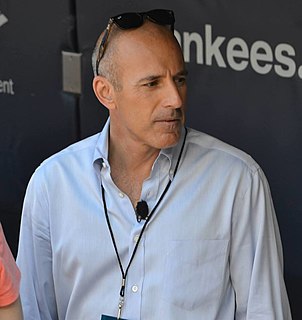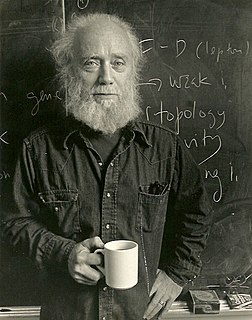A Quote by Joan Crawford
[To the mother of two unruly children in a restaurant after the woman said she really didn't know what to do with her children:] Have you tried infanticide?
Related Quotes
Sometimes we adopt certain beliefs when we're children and use them automatically when we become adults, without ever checking them out against reality. This brings to mind the story of the woman who always cut off the end of the turkey when she put it in the oven. Her daughter asked her why, and her mother responded, "I don't know. My mother always did it." Then she went and asked her mother, who said, "I don't know. My mother always did it." The she went and asked her grandmother, who said, "The oven wasn't big enough."
One thing I did have under my belt was, my mother lost her mother when she was 11. She mourned her mother her whole life and made my grandmother seem present even though I never met her. I couldn't imagine how my mom could go on but she did, she took care of us, she worked two jobs and had four children. She was such a good example of how to conduct oneself in a time of grief. When I lost my husband, I tried to model myself as much as I could on her.
The Olinka girls do not believe girls should be educated. When I asked a mother why she thought this, she said: A girl is nothing to herself; only to her husband can she become something. What can she become? I asked. Why, she said, the mother of his children. But I am not the mother of anybody's children, I said, and I am something.
All children, except one, grow up. They soon know that they will grow up, and the way Wendy knew was this. One day when she was two years old she was playing in a garden, and she plucked another flower and ran with it to her mother. I suppose she must have looked rather delightful, for Mrs Darling put her hand to her heart and cried, ‘Oh, why can’t you remain like this for ever!’ This was all that passed between them on the subject, but henceforth Wendy knew that she must grow up. You always know after you are two. Two is the beginning of the end.
What is a woman's power then?" she asked. "I don't think we know." "When has a woman power because she's a woman? With her children, I suppose. For a while..." "In her house, maybe." She looked around the kitchen. "But the doors are shut," she said, "the doors are locked." "Because you're valuable." "Oh yes. We're precious. So long as we're powerless.
A mother experiences more than one death, even though she herself will only die once. She fears for her husband; she fears for her children; again she fears for the women and children who belong to her children. ... For each of these-whether for loss of possessions, bodily illness, or undesired misfortune-she mourns and grieves no less than those who suffer.
Sometimes, she said, mostly to herself, I feel I do not know my children... It was a fleeting statement, one I didn't think she'd hold on to; after all, she had birthed us alone, diapered and fed us, helped us with homework, kissed and hugged us, poured her love into us. That she might not actually know us seemed the humblest thing a mother could admit.
We went to the same college so I know [Hillary Clinton's] study habits, but when she was first lady of Arkansas, she did a lot of things already for children, and she was head of the Children's Defense Fund, and that's how I first heard her or met her, she was very very involved in really a very important social program to do something about children and women and education.
Nora leaves her husband, not-as the stupid critic would have it-because she is tired of her responsibilities or feels the need of woman's rights, but because she has come to know that for eight years she had lived with a stranger and borne him children. Can there be anything more humiliating, more degrading than a life-long proximity between two strangers? No need for the woman to know anything of the man, save his income. As to the knowledge of the woman-what is there to know except that she has a pleasing appearance?
A woman will test you to see if you are what you say you are. Any woman that you fall in love with: She loves you too, but she's going to try you; that's her nature. She has to know that she can depend on you; she has to know that you will stand up for her. She has to know that you will back up the children that she brings in the world for us.



































